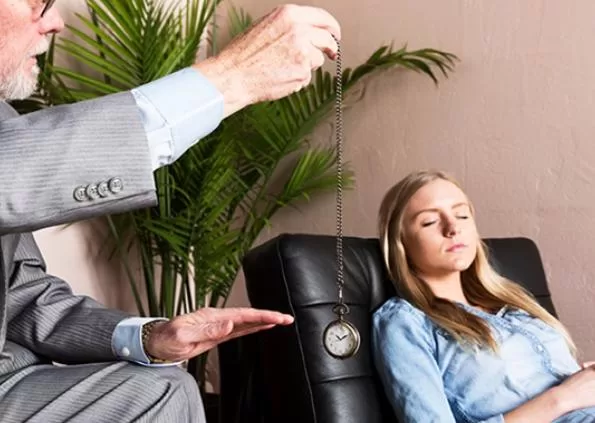Can Hypnosis Be Used To Overcome Insomnia?
Learn how hypnosis can be used to help treat insomnia.

Selfpause Affirmation App
Download the app to get 1,000’s of affirmation meditations and everything you need to write, record and listen to your own.
Insomnia is a widespread sleep problem that affects millions of people throughout the world. It is characterized by difficulties getting asleep, keeping asleep, waking up too early, and experiencing daytime fatigue. Insomnia can have substantial effects on a person’s physical, mental, and emotional health, including weariness, irritation, mood swings, and concentration difficulties. In addition to medications, psychotherapy, and changes in lifestyle, hypnosis is an alternate treatment for insomnia that can be successful for certain individuals. This article examines how hypnosis can be used to treat insomnia.
What exactly is hypnosis?

Hypnosis is a state of consciousness characterized by profound relaxation, heightened suggestibility, and concentrated concentration. During hypnosis, a person is brought into a state of relaxation in which they are more receptive to ideas that can help them modify their behavior or cognitive patterns. Typically, a professional and qualified hypnotherapist employs certain procedures to induce hypnosis.
Hypnosis can be utilized to treat numerous ailments, including anxiety, sadness, phobias, and chronic pain. In recent years, insomnia has also been treated with hypnosis.
How Hypnotherapy May Aid Sleeplessness

Hypnosis can be used to cure insomnia by addressing the condition’s underlying causes. Many variables, including stress, worry, sadness, physical pain, and poor sleep hygiene, can contribute to insomnia. Hypnosis can be used to address these concerns by assisting individuals with relaxation, stress and anxiety management, and the development of healthy sleep patterns.
During a hypnosis session for insomnia, the hypnotherapist may utilize techniques such as guided imagery, progressive muscle relaxation, and breathing exercises to produce a state of deep relaxation. The hypnotherapist may also offer suggestions to assist the individual go asleep more quickly, remain asleep for longer, and awaken feeling rested and revitalized.
One of the primary advantages of hypnosis for insomnia is that it can assist persons in developing good ideas and attitudes regarding sleep. Numerous persons with insomnia may experience anxiety or stress around their inability to fall asleep, which can exacerbate the condition. Hypnosis can help people create a more positive attitude toward sleep and reduce anxiety and stress, making it easier to fall asleep and stay asleep.
Investigations of Hypnosis and Insomnia

Many research on the usefulness of hypnosis for insomnia have been undertaken, and the findings have been encouraging. In a 2012 study published in the International Journal of Clinical and Experimental Hypnosis, it was observed that hypnosis improved sleep quality and reduced insomnia symptoms among college students.
A 2018 study published in the journal Sleep Medicine Reviews demonstrated that hypnosis is beneficial in lowering the time it takes adults with chronic insomnia to fall asleep and increasing their overall sleep time. In addition, the advantages of hypnosis were shown to be equivalent to those of cognitive-behavioral therapy (CBT), a standard treatment for insomnia.
While further research is necessary to completely evaluate the efficacy of hypnosis for insomnia, these findings indicate that hypnosis may be a beneficial therapy option for people with sleep disorders.
How to Locate a Hypnotherapist for Insomnia

It is essential to identify a certified and experienced hypnotherapist if you are interested in using hypnosis to combat insomnia. Search for a hypnotherapist who has obtained certification from a respected organization, such as the American Society of Clinical Hypnosis or the National Board of Certified Clinical Hypnotherapists. Before commencing therapy, it is also essential to discuss your issues and objectives with the hypnotherapist to confirm that hypnosis is a good fit for you.
In addition to hypnosis, various other techniques can be utilized to improve sleep quality and overcome insomnia. They consist of:
Maintaining a Consistent Sleep Schedule: Going to bed and waking up at the same time each day can assist in regulating the sleep-wake cycle of the body.
Building a Calming Sleep Environment: A room that is dark, cold, and quiet is conducive to sleep. Eliminate distractions such as televisions and computers, and utilize cozy bedding and pillows.
Proper sleep hygiene requires avoiding coffee, nicotine, and alcohol before bedtime. Also, avoid eating heavy meals and engaging in vigorous exercise close to night.
Stress management: Anxiety and stress can make it harder to fall asleep. To relieve stress, try relaxation techniques such as deep breathing exercises or meditation.
Getting Expert Assistance If your sleeplessness persists, it may be beneficial to consult a healthcare practitioner. They may offer medication, counseling, or other therapies to improve the quality of your sleep.
Conclusion
Insomnia is a frequent sleep condition that can significantly affect a person’s physical, mental, and emotional wellbeing. While there are numerous methods for treating insomnia, hypnosis can be an effective alternative treatment for certain persons. It is possible to employ hypnosis to address the underlying reasons of insomnia, such as stress and worry, and to build healthy sleeping patterns. Studies demonstrates that hypnosis can improve sleep quality and alleviate insomnia symptoms. If you are interested in using hypnosis to treat your insomnia, you must first locate a certified and experienced hypnotherapist with whom you may discuss your concerns and desired outcomes. In addition, effective sleep hygiene and stress management can aid in improving sleep quality and overcoming insomnia.
